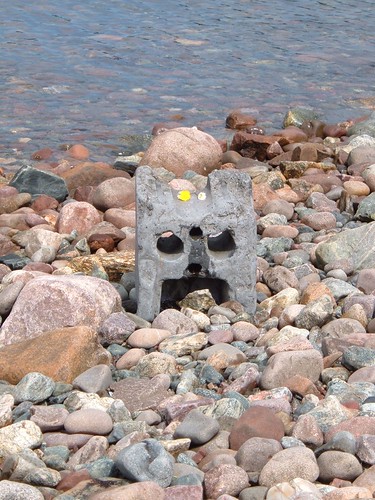 33 years ago, in Mister Miracle #18 ('Wild, Wild Wedding Guests!), the title character (aka 'Scott Free', super escape artist) married Big Barda('Female Fury' from Armaghetto on the world of Apokolips, later subject of an essay by author Michael Chabon.) The wedding was beset by a gallery of boldly drawn pop-art villains, but was nevertheless completed as ordained ('This cannot be stopped! The Source has sanctioned this marriage in words of fire!' - definitely part of the script of our own vow-renewal.) In the final panels, Miltonian supervillain Darkseid arrives in a thunderous tornado, grey-granite face like Nixon on Mount Rushmore, and muses that although he hadn't stopped the service he had spoiled it, declaiming "It had deep sentiment yet little joy. But life at best is bittersweet."
33 years ago, in Mister Miracle #18 ('Wild, Wild Wedding Guests!), the title character (aka 'Scott Free', super escape artist) married Big Barda('Female Fury' from Armaghetto on the world of Apokolips, later subject of an essay by author Michael Chabon.) The wedding was beset by a gallery of boldly drawn pop-art villains, but was nevertheless completed as ordained ('This cannot be stopped! The Source has sanctioned this marriage in words of fire!' - definitely part of the script of our own vow-renewal.) In the final panels, Miltonian supervillain Darkseid arrives in a thunderous tornado, grey-granite face like Nixon on Mount Rushmore, and muses that although he hadn't stopped the service he had spoiled it, declaiming "It had deep sentiment yet little joy. But life at best is bittersweet." The marriage of my longstanding friend Paul to the lovely Anna last Saturday had both deep emotion and visible joy. Tornadoes and supervillains were little in evidence, although the day was somewhat blustery. In Brighton's Royal Pavilion, sounds of buskers and excitable language students drifted through the windows during the moving service, giving it a very Brightonian atmosphere. The Pavilion people, wary of yet another fire, vetoed a delightful part of the ceremony (deferred to the reception) - the lighting of a 'candle of unity' from two flames. Beautiful symbolism.
The following day one of our nephews lit a candle too during his baptism. Flames and symbols moving from person to person, place to place. Then it was time to go.

So a weekend of symbolic events and momentous lifestages. For me the bittersweet element was present too - such things (and indeed being in Brighton at all, once the site of all possibility, now suspiciously like just another real place) bring to mind 'time's long ruin' - some sweet melancholy as the shadow cast by present joy.
Did take a few pics on my phone. These aren't the best imaginable picture - I'm sure the various imagemaking devices being brandished will produce better ones at some point...
 The best man is responsible for looking after the groom. He is less concerned with the wellbeing of the guests.
The best man is responsible for looking after the groom. He is less concerned with the wellbeing of the guests.
Neville-attending blonde man figures out camera controls with the aid of the manual
 Phil sweeps back his flowing locks
Phil sweeps back his flowing locks
The main event - Cyprus conjoined with Russia







